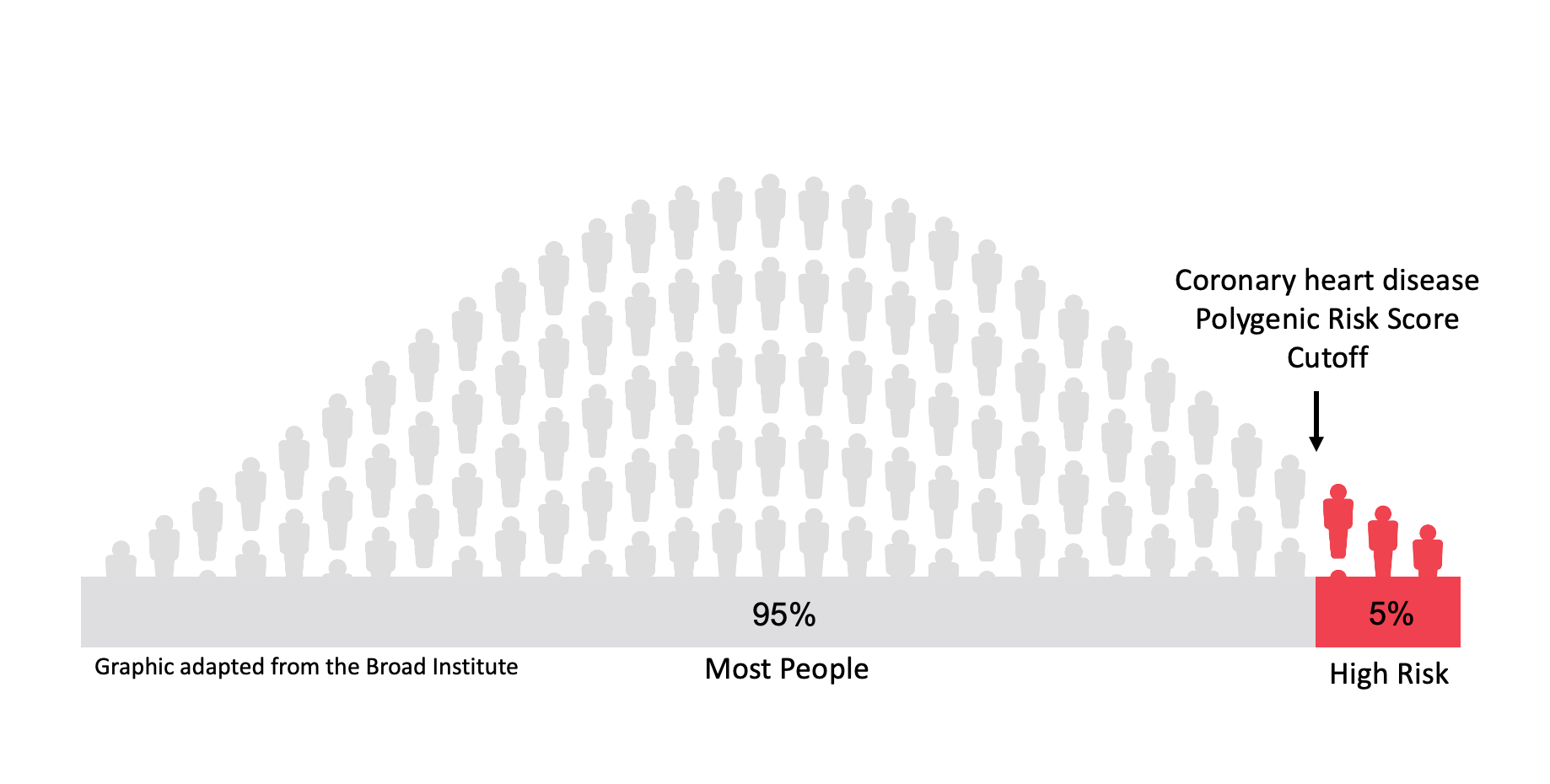Coronary Heart Disease (Adults): Understanding Your Results
What is coronary heart disease?
- Coronary Heart Disease (CHD) results from plaque formation (also called atherosclerosis) in the arteries supplying the heart. As plaque builds up, the arteries narrow, affecting blood flow to the heart. If blood flow becomes reduced or blocked, angina (chest pain) or a heart attack may occur. Over time, coronary heart disease can also lead to heart failure and abnormal heart rhythm.
- Risk factors for CHD include older age, male sex, smoking, high blood pressure, diabetes, and high cholesterol levels. Genetic factors and family history also increase risk for CHD.
What does high risk for coronary heart disease mean?
- On average, about 7 out of 100 people, or 7% of people, age 20 and older in the United States have coronary heart disease.
- Your risk of coronary heart disease is high because of one of the following reasons:
- You have a close blood relative with coronary heart disease.
- The presence of family history of CHD indicates your risk is 1.5-2 times higher than the average person.
- The presence of family history of CHD indicates your risk is 1.5-2 times higher than the average person.
- You have a high polygenic risk score (PRS) for coronary heart disease.
- Your polygenic risk score is in the top 5%. This means that you may have a higher genetic risk for coronary heart disease than 95 out of 100 people.
- You have a close blood relative with coronary heart disease.

-
- High polygenic risk for coronary heart disease means your risk for developing coronary heart disease is 1.6-2.3 times higher than a person not in the high-risk category.
- This result does not mean that you have coronary heart disease or that you will definitely develop coronary heart disease in your lifetime.
- This PRS was created using genetic information from large research studies of people with European, African American, East Asian, South Asian and Hispanic/Latino descent. We outline how this score was created below:
- DNA differences in each population that are linked to coronary heart disease risk were identified
- These DNA differences were combined into a single score, called a “PRS”
- This score was tested using genetic information from other research studies with different populations and was accurate
- Larger research studies are needed in people of from populations other than those listed above, to provide a risk range – see the Broad PRS report attached.
What can you do to lower your risk for coronary heart disease?
- Not everyone who is at high risk for coronary heart disease will get it. Talk to your doctor(s) or healthcare provider about how to decrease your chances of getting coronary heart disease.
- You can lower your risk by:
- Treating risk factors such as high cholesterol, diabetes, or high blood pressure
- Lifestyle measures:
- Quitting smoking if you smoke
- Increasing physical activity (aim for 150 minutes of moderate-intensity or 75 minutes of vigorous-intensity exercise per week)
- Maintaining a healthy weight
- Eating a Mediterranean style diet
- Screening measures:
- Check your lipid levels and fasting blood sugar (if not checked within the last 2-3 years).
- Discuss additional testing such as a coronary calcium scan with your doctor
- Discuss the use of a statin medication to reduce your risk of coronary heart disease with your doctor or other care provider.
What are your next steps?
- You should share these results with your doctor(s) or other healthcare provider to discuss
actions to be taken to lower your risk. - You may also want to share your results with your family members.
- Your results will be uploaded to your electronic health record for you to review and will be
available to your doctor(s) and other healthcare providers. - If you have any questions about your results, please contact the study team at your
institution. You can find this contact information on the cover page of the GIRA.
